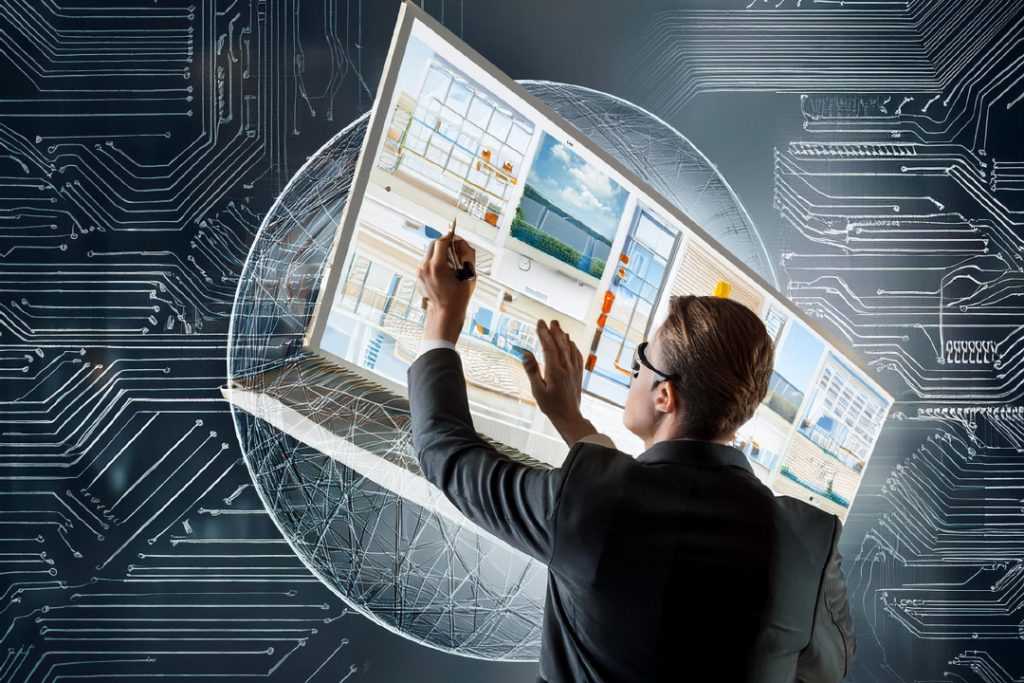Artificial Intelligence (AI) has transcended its humble beginnings and evolved into a transformative force with profound effects on every aspect of life. From how we communicate to how we work, shop, and even think, AI’s influence is growing exponentially. The impact is far greater than we ever imagined, and it continues to shape the world in ways that feel both exhilarating and intimidating.
In this comprehensive article, we’ll explore the multi-dimensional influence of AI and why its significance surpasses anything we once dreamed possible.
The Evolution of AI: From Sci-Fi to Everyday Reality
A Brief History of AI
AI wasn’t always this omnipresent force. The concept of machines that could mimic human thinking dates back to ancient mythology, but it wasn’t until the mid-20th century that computer scientists like Alan Turing and John McCarthy laid the foundations for AI as we know it. Fast-forward to the 21st century, and AI is not just an academic curiosity but an integral part of daily life.
From IBM’s Watson winning “Jeopardy!” to the rise of self-driving cars and ChatGPT, AI has progressed from theoretical algorithms to real-world applications that are reshaping industries.
AI in Everyday Applications
Think about how AI is woven into our daily routines. When you ask Alexa to play your favorite song, get recommendations on Netflix, or receive personalized marketing emails, you’re interacting with AI. It powers facial recognition on your phone and predicts traffic patterns to make your commute smoother.
AI has become an invisible yet powerful engine driving our world.
AI’s Impact on the Workplace

Automation and Job Transformation
One of the most debated topics surrounding AI is its impact on employment. The automation of repetitive tasks is not a distant threat; it’s a current reality. Robots and AI software are taking over jobs in factories, warehouses, and even white-collar sectors, automating tasks that once required human effort.
However, it’s not just about job loss. AI is also creating new opportunities. As AI handles monotonous tasks, humans can focus on more complex, creative, and emotionally nuanced roles. The key to surviving this shift lies in reskilling and adapting.
AI in Decision-Making and Productivity
In the corporate world, AI tools are making decision-making faster and more data-driven. Companies use AI for predictive analytics, customer behavior insights, and even employee performance tracking. Imagine a CEO armed with an AI-driven dashboard that shows real-time data on market trends, allowing instant strategic decisions. This level of insight is revolutionizing productivity.
Transforming Healthcare: AI as a Life-Saver
Diagnosing Diseases and Personalized Medicine
AI has become a game-changer in medicine. From diagnosing diseases more accurately to tailoring treatment plans based on genetic information, the possibilities are endless. AI systems like IBM’s Watson Health and Google’s DeepMind are already analyzing complex medical data to assist doctors and researchers.
One of the most significant breakthroughs is the use of AI in early disease detection. AI algorithms can analyze medical images, identifying early signs of cancer or neurological diseases with unprecedented accuracy.
Robotic Surgery and Patient Care
AI-driven robotics are transforming the operating room. These robots assist in surgeries by providing incredible precision and reducing human error. AI is also streamlining patient care, from virtual health assistants to predictive analytics that foresee patient needs and reduce hospital readmission rates.
Revolutionizing Education Through AI
Personalized Learning Experiences
Education is no longer confined to a “one size fits all” model. AI is enabling personalized learning experiences, adapting to each student’s pace and style. Learning platforms like Duolingo and Khan Academy use AI to monitor progress and offer customized lesson plans, making education more effective and engaging.
Imagine a classroom where every student has a virtual tutor, providing instant feedback and tailoring exercises to their strengths and weaknesses. This is the future AI is promising.
Transforming Educational Administration
Beyond teaching, AI is optimizing school management by automating administrative tasks. From admissions and grading to resource allocation, AI makes processes more efficient, allowing educators to focus more on teaching.
Enhancing Communication and Creativity
AI in Language and Translation
AI is breaking language barriers with tools like Google Translate and real-time transcription services. This has enormous implications for global communication, diplomacy, and cross-cultural collaboration. Businesses can now reach a global audience with minimal effort.
AI in Content Creation
Content creators are using AI tools to assist with writing, music composition, and even art. While this may raise questions about authenticity and originality, the reality is that AI is boosting human creativity. For instance, AI-generated music platforms can create background scores, and AI writing assistants can help writers brainstorm ideas.
Ethical Dilemmas: The Dark Side of AI
Privacy Concerns and Data Security
AI’s ability to analyze vast amounts of data also brings up ethical concerns, primarily around privacy and security. The same algorithms that help businesses understand consumer behavior can be used for surveillance, infringing on personal freedoms.
AI-powered facial recognition is controversial, especially when used for policing or mass surveillance. Who controls this technology, and how it’s used, are questions that need answers sooner rather than later.
Bias and Fairness
AI systems are only as good as the data they’re trained on. Unfortunately, data often reflect human biases, leading to AI algorithms that are unintentionally discriminatory. For example, facial recognition software has been shown to be less accurate for people with darker skin tones, raising serious ethical concerns.
Efforts are underway to create fair and unbiased AI, but the challenges are immense and require continuous vigilance.
The Global Economy: A New Era of AI
AI in Finance and Trading
Financial institutions are using AI for algorithmic trading, fraud detection, and customer service. AI-driven financial models are able to analyze global markets in seconds, making high-stakes financial decisions with breathtaking speed. While this has led to increased efficiency, it also poses risks, such as market instability due to automated trading.
AI and Economic Inequality
The benefits of AI are not distributed equally. Wealthy countries and corporations have a significant advantage, creating a wider gap between rich and poor. Developing nations that lack the resources to invest in AI infrastructure risk falling behind in the global economy.
AI in Art and Culture: The Creativity Debate

AI-Generated Art and Music
Can a machine create art that moves people emotionally? AI programs like DALL-E and Jukedeck are challenging our understanding of creativity. Some argue that AI-generated art lacks the soul and experience of human-created pieces, while others believe it pushes the boundaries of what art can be.
The debate continues, but there’s no denying that AI is expanding the creative landscape in unimaginable ways.
AI in Film and Entertainment
AI is not just assisting in content creation; it’s transforming how movies are made. From script analysis to predicting box office success, AI is becoming a filmmaker’s tool. Streaming platforms use AI to curate content, making the viewer experience more engaging.
The Unseen Impact: AI and Environmental Sustainability
Smart Solutions for Climate Change
AI is being used to address some of the world’s most pressing issues, like climate change. Predictive algorithms help model climate scenarios, while AI-powered smart grids optimize energy use, reducing carbon emissions. Companies are also using AI for environmental monitoring, such as tracking deforestation and predicting natural disasters.
Resource Management and Conservation
AI-driven analytics assist in managing natural resources more efficiently. For example, precision agriculture uses AI to determine the optimal use of water and fertilizers, minimizing waste and promoting sustainable farming practices.
The Future: Where Do We Go From Here?
Preparing for an AI-Dominated World
The future of AI is both thrilling and uncertain. Experts are divided on whether AI will ultimately be a force for good or a catalyst for unforeseen challenges. What is clear is that society must adapt, regulating AI responsibly while also harnessing its potential to improve our lives.
Education and public policy need to evolve alongside AI advancements, ensuring that the benefits are shared equitably and that ethical considerations are prioritized.
Here is a list of informative websites where you can learn more about artificial intelligence, complete with links and brief descriptions:
1. AI Topics (Association for the Advancement of Artificial Intelligence)
- Description: AITopics, curated by the AAAI, is a comprehensive collection of information on AI, offering news, tutorials, and research papers. It covers everything from machine learning to robotics and provides a well-rounded view of the latest advancements and challenges in the AI field.
2. MIT Technology Review – Artificial Intelligence
- Description: MIT Technology Review is known for its in-depth analysis and coverage of emerging technologies. The AI section features articles on cutting-edge research, ethical debates, and how AI is shaping various industries, making it a go-to resource for staying up to date.
3. OpenAI Blog
- Description: OpenAI, one of the leading organizations in AI research, shares updates on its projects, research papers, and insights into the future of AI. You’ll find information on major AI developments like GPT models and OpenAI’s contributions to the field.
4. DeepMind Blog
- Description: DeepMind, an AI research lab owned by Alphabet (Google’s parent company), offers insights into groundbreaking research in reinforcement learning and neural networks. The blog highlights the real-world applications of AI and the ethical considerations they address.
5. KDnuggets
- Description: KDnuggets is a leading site for AI, data science, and machine learning enthusiasts. It offers tutorials, news, and guides on AI-related topics, making it useful for both beginners and experts. The site is rich in resources, including webinars and code examples.
6. AI Alignment Forum
- Description: This is a forum dedicated to the safe and ethical alignment of AI systems with human values. It’s a place for academics, researchers, and enthusiasts to discuss complex topics surrounding AI safety, control, and societal impact.
7. Towards Data Science
- Description: A Medium publication that provides a wide range of articles on data science, machine learning, and AI. It’s user-friendly and features content that ranges from introductory tutorials to deep-dive explorations of AI algorithms.
8. Stanford AI Lab
- Description: The Stanford Artificial Intelligence Laboratory (SAIL) offers information on the latest AI research coming out of Stanford University. You can access publications, ongoing projects, and insights into the academic exploration of AI technologies.
9. Google AI
- Description: Google AI’s official site showcases their research and applications in artificial intelligence. It includes information on Google’s advancements in natural language processing, computer vision, and other areas. They also provide access to open-source tools and datasets.
10. Machine Learning Mastery
- Description: A practical, beginner-friendly resource for those who want to learn machine learning and AI from scratch. The site offers tutorials, courses, and guides focused on coding and implementing algorithms in Python.
These websites cover a wide range of AI-related topics, from foundational concepts and tutorials to cutting-edge research and ethical considerations. Happy exploring!
Conclusion
AI’s impact on the world is bigger than we ever dreamed possible, affecting everything from healthcare and education to the arts and global economies. The technology is both a powerful ally and a formidable challenge, shaping the future in ways we are just beginning to understand. While it offers immense opportunities, it also requires thoughtful regulation and responsible innovation.
As we move forward, the question isn’t whether AI will change the world but how we will choose to shape that change. The time to think critically about AI is now, because the future is unfolding faster than ever before.
Here some recommended links selected for you: The Best Books of the Month, Todays best Deals at Amazon, Best Sellers in Cell Phones & Accessories and last but not least the easy and great way to send a gift for the holidays: Amazon.com eGift Card (Instant Email or Text Delivery).





